










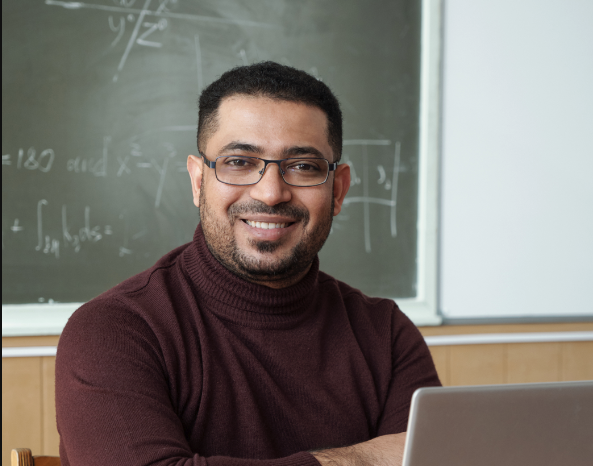
More than 4 million 5-star reviews
65,000 expert tutors in 300+ subjects
Find a great match with our Good Fit Guarantee
More than 4 million 5-star reviews
65,000 expert tutors in 300+ subjects
Find a great match with our Good Fit Guarantee
Featured by the nation’s most respected news sources
Tutors from top universities
Meet 1:1 at home or nearby
The Best Tutors in New Haven, CT
Find the best local tutor in New Haven
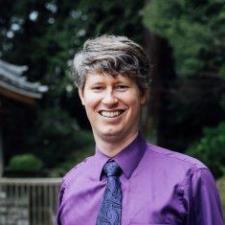
New Haven, CT
PhD in Japanese literature who has lectured at Yale and UBC
There are many teachers out there, but few who understand the art of teaching. Each student needs a personalized and tailored approach in order to help them gain the skills they need to succeed in life. Too many tutors out there treat every...
There are many teachers out there, but few who understand the art of teaching. Each student needs a personalized and tailored approach in order to help them gain the skills they need to succeed in life. Too many tutors out there treat every...
I would like to say, he's an amazing SAT Writing tutor. He explains everything from the beginning and gives unique tricks to assist students and allow them to succeed in the SAT Writing portion. I highly recommend this tutor to an... - Thomas, 4 lessons with Kurtis

New Haven, CT
Yale PhD candidate here to help make math and statistics work for you!
Hi! My name is Kim, and I'm a Yale PhD candidate based in New Haven CT but often works remotely. My goal is to help you (no matter who you are!) meet whatever math and statistics goals you've set for yourself. I'm currently pursuing my PhD in...
Hi! My name is Kim, and I'm a Yale PhD candidate based in New Haven CT but often works remotely. My goal is to help you (no matter who you are!) meet whatever math and statistics goals you've set for yourself. I'm currently pursuing my PhD in...
Kim is hands down the best tutor I've ever worked with. I'm starting a new job and I've been very busy. Meanwhile I've been doing my MBA and have to take a difficult managerial economics course this quarter. The concepts are tough... - Mimi, 2 lessons with Kim
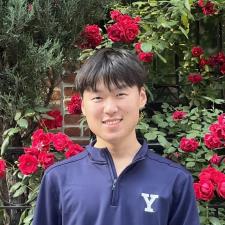
New Haven, CT
Patient and Experienced Yale Tutor
Hi! My name is Chenming Fang, and I am a student at Yale University studying Economics and Statistics & Data Science with a 4.0 GPA. I graduated from Stuyvesant High School in New York City with a 97.72/100 GPA and 13 AP courses (score of 5/5 on...
Hi! My name is Chenming Fang, and I am a student at Yale University studying Economics and Statistics & Data Science with a 4.0 GPA. I graduated from Stuyvesant High School in New York City with a 97.72/100 GPA and 13 AP courses (score of 5/5 on...

New Haven, CT
Med Student @ Yale. Math, Science, MCAT (523) Expert
Hi! I’m Rahul. I graduated with honors from Brown University, where I studied Applied Mathematics and Biology, and I am currently a medical student at Yale School of Medicine. During my time at Brown, I conducted computational neuroscience...
Hi! I’m Rahul. I graduated with honors from Brown University, where I studied Applied Mathematics and Biology, and I am currently a medical student at Yale School of Medicine. During my time at Brown, I conducted computational neuroscience...
Rahul's lessons were just the timely help our son needed just before the test. He is very resourceful and had a good understanding of Biology. I just wish we had gotten him sooner than towards the last few days, His interest in ... - Shubha, 2 lessons with Rahul

Near New Haven, CT
Caring, Patient, and Versatile Math Tutor, 6+ Years Experience
Hello, my name is Josh. For the past five years, I have maintained a steady clientele of students in all areas of math, including Algebra, Geometry, Precalculus, Calculus, Differential Equations, and Linear Algebra. I tutor upper level college...
Hello, my name is Josh. For the past five years, I have maintained a steady clientele of students in all areas of math, including Algebra, Geometry, Precalculus, Calculus, Differential Equations, and Linear Algebra. I tutor upper level college...
I had been struggling with Calculus II content for a while. Josh has completely changed the game for me. He is incredibly patient and explains things away that allow things to click for me. He is an exceptionally gifted teacher. I... - Alex, 31 lessons with Josh
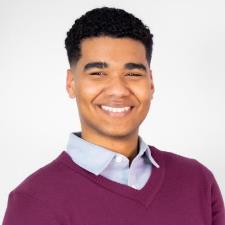
Near New Haven, CT
Future Math Educator | Helping Students Build Confidence in Math
I am currently pursuing my Mathematics degree in Connecticut, with coursework up to Calculus. Throughout my academic journey, I have provided tutoring to both high school students and college peers, which has given me a strong understanding of the...
I am currently pursuing my Mathematics degree in Connecticut, with coursework up to Calculus. Throughout my academic journey, I have provided tutoring to both high school students and college peers, which has given me a strong understanding of the...
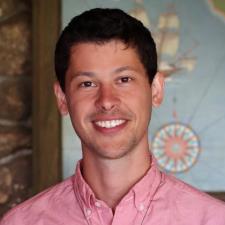
New Haven, CT
Patient and Kind Yale Tutor for SAT, Latin, Humanities, and Math
Hello, I'm Oliver! My tutoring career began in high school with the subjects of Latin, Math, History, and Biology. After I graduated, I continued tutoring and added on SAT prep to my repertoire. I graduated from Yale College in 2017 and Yale...
Hello, I'm Oliver! My tutoring career began in high school with the subjects of Latin, Math, History, and Biology. After I graduated, I continued tutoring and added on SAT prep to my repertoire. I graduated from Yale College in 2017 and Yale...
My son has been working with Oliver for a little bit now. Oliver is a great and knowledgeable tutor who truly helped my son get his confidence back in math. Oliver is in contact with my son's Math teacher and they discuss what h... - Teresa, 6 lessons with Oliver
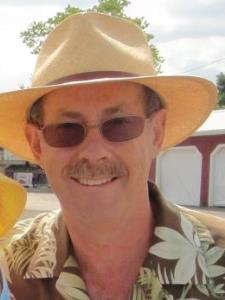
Near New Haven, CT
Expert College Professor, Business Executive and Management Consultant
I am currently a Professor at a private university (earlier at a public university) in graduate (MBA, MS and PhD) business, statistics and analytics, operations & supply chain mgmt, finance, and strategy disciplines. Among the courses I teach...
I am currently a Professor at a private university (earlier at a public university) in graduate (MBA, MS and PhD) business, statistics and analytics, operations & supply chain mgmt, finance, and strategy disciplines. Among the courses I teach...
Ivan B. is a true subject matter expert in (among other areas) the statistics and operations management body of knowledge. He is quickly perceptive of individual level and learning style, and delivers the material in a manner that... - Joe, 10 lessons with Ivan

Near New Haven, CT
35 year veteran teacher, Elementary & Middle School, hwk coach
I have been a middle school science teacher for 35 years and retired in June 2023. I have a Bachelor's in Education and a Master's degree in Environmental Education. Of those teaching years 12 were in 8th grade science, the other 23 years were...
I have been a middle school science teacher for 35 years and retired in June 2023. I have a Bachelor's in Education and a Master's degree in Environmental Education. Of those teaching years 12 were in 8th grade science, the other 23 years were...
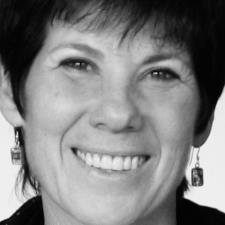
Near New Haven, CT
Experienced, Creative, and Friendly Cosmopolitan Languages Teacher
In my early childhood, I inherited from my grandparents a photo-album of Beijing in the late nineteenth century. This album was my first exposure to Chinese culture. Those large sepia photos on thick glossy paper with their bewitching images of...
In my early childhood, I inherited from my grandparents a photo-album of Beijing in the late nineteenth century. This album was my first exposure to Chinese culture. Those large sepia photos on thick glossy paper with their bewitching images of...
I was very impressed with my first session with Ilana and her knowledge of the Chinese language, pronunciation and characters. What I was most impressed with was her rigorous approach to teaching language, which isn't always poss... - Christopher, 2 lessons with Ilana

Near New Haven, CT
Professional musician, educator, computer application tutor
Hi, I'm John. I have been a music educator and professional musician for many years, with degrees in music education, educational technology, and educational administration. I have years of experience teaching middle and high school students,...
Hi, I'm John. I have been a music educator and professional musician for many years, with degrees in music education, educational technology, and educational administration. I have years of experience teaching middle and high school students,...
It’s one thing to be a musician, another thing to know the technical production side of softwares (E.g Logicpro), and...it’s a whole other thing to know how to teach it. John brings these three components together and is a highly ... - Boaz, 6 lessons with John
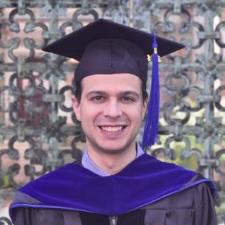
New Haven, CT
Yale Ph.D. : Undergrad and Grad Writing Coach & Admissions Strategist
Hello! I'm Danny. I received my PhD in English at Yale University in 2024. I also studied at Oxford University and Sarah Lawrence. I've taught and TAd for over a dozen courses at Yale since 2019. My expertise is in reading, writing, and...
Hello! I'm Danny. I received my PhD in English at Yale University in 2024. I also studied at Oxford University and Sarah Lawrence. I've taught and TAd for over a dozen courses at Yale since 2019. My expertise is in reading, writing, and...
Today Danny assisted my daughter in preparing for a highly technical English test. He has proven to be very knowledgeable on the subject matter, capable of providing not only the "what" and the "how", but also the "why." As a re... - Mike, 3 lessons with Daniel
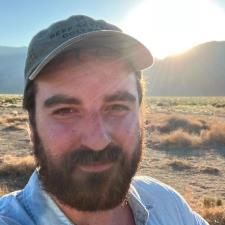
New Haven, CT
Beloved Yale Humanities Prof: Mentoring, Essays, Applications, Classes
As a beloved humanities professor with ten years of teaching and mentoring success at Yale, Columbia, and Deep Springs, I believe that seeking depth is the key to a meaningful life. To that end, I welcome students of all ages seeking mentorship,...
As a beloved humanities professor with ten years of teaching and mentoring success at Yale, Columbia, and Deep Springs, I believe that seeking depth is the key to a meaningful life. To that end, I welcome students of all ages seeking mentorship,...
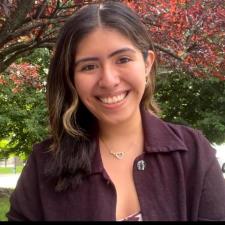
New Haven, CT
Passionate Biology and Science Tutor
I hold a Bachelor’s degree from Lehigh University, where I developed a strong academic foundation in biology and the life sciences. During my undergraduate studies, I gained hands-on research and teaching experience that deepened both my subject...
I hold a Bachelor’s degree from Lehigh University, where I developed a strong academic foundation in biology and the life sciences. During my undergraduate studies, I gained hands-on research and teaching experience that deepened both my subject...

New Haven, CT
I meet students where they are to help them meet their goals
I'm a 20-year veteran math teacher. I earned my degree in math from the University of Connecticut, where I also minored in American History. I've also completed graduate coursework at Wesleyan University, mostly in mathematics, statistics, and...
I'm a 20-year veteran math teacher. I earned my degree in math from the University of Connecticut, where I also minored in American History. I've also completed graduate coursework at Wesleyan University, mostly in mathematics, statistics, and...

Near New Haven, CT
Math Expert, Standardized Testing Pro
I'm Jack Goodman, a resident of Wallingford, Connecticut. My academic qualifications include a Bachelor of Science and a Master of Arts degree in Mathematics from Marshall University, and a Master of Science degree in Math from the University of...
I'm Jack Goodman, a resident of Wallingford, Connecticut. My academic qualifications include a Bachelor of Science and a Master of Arts degree in Mathematics from Marshall University, and a Master of Science degree in Math from the University of...

Near New Haven, CT
Lightroom and Photoshop Problem Solver, and Teacher
My name is John R., and I specialize in high-end Portrait and Lifestyle Retouching. For more than 25 years, I’ve been working in the printing, photography, retouching, marketing, and graphic design fields. So if you have questions on Lightroom...
My name is John R., and I specialize in high-end Portrait and Lifestyle Retouching. For more than 25 years, I’ve been working in the printing, photography, retouching, marketing, and graphic design fields. So if you have questions on Lightroom...
My interest is the application of Lightroom and Photoshop to portraits. Not how the commands work. But, what needs to be modified in images to make them pop and how to make changes that look natural. Wow! I chose the right tutor. ... - Jeff

Near New Haven, CT
10 yrs patient Math and Science tutor. Ranked Top 10% of tutors
Ranked Top 10% of all Wyzant tutors for the year 2019. Who am I? I'm a Cum Laude graduate from the University of Central Florida, 2019. I earned a double degree in Biomedical Sciences BS and Psychology Neuroscience Track BS. Before then I...
Ranked Top 10% of all Wyzant tutors for the year 2019. Who am I? I'm a Cum Laude graduate from the University of Central Florida, 2019. I earned a double degree in Biomedical Sciences BS and Psychology Neuroscience Track BS. Before then I...
Math is not my strong point. I was struggling in my college math class until I contacted Abbygail in a "math emergency". She responded within the hour. We set up a tutoring session that day and she was a lifesaver. She makes the m... - Paula, 11 lessons with Abbygail

New Haven, CT
Passionate Yale PhD, Ready to Conquer Organic Chemistry With You!
I love organic chemistry and tutoring! Specifically, I am a passionate PhD student at the Yale University with 8+ years of experience in the field of chemistry. I recently received my BA and MS in Chemistry from the University of Pennsylvania. I...
I love organic chemistry and tutoring! Specifically, I am a passionate PhD student at the Yale University with 8+ years of experience in the field of chemistry. I recently received my BA and MS in Chemistry from the University of Pennsylvania. I...

New Haven, CT
Expert Mentoring in Math, Chem, Physics, Stats, Music and Fitness
I have been teaching students for 14 years, primarily in Mathematics, Statistics, Physics, General and Organic Chemistry, Strength Training, and Music. It has been extremely gratifying to me when I have been able to help a struggling student...
I have been teaching students for 14 years, primarily in Mathematics, Statistics, Physics, General and Organic Chemistry, Strength Training, and Music. It has been extremely gratifying to me when I have been able to help a struggling student...

New Haven, CT
Ph.D. Supports YOU in: Writing, English, Photography, Screenwriting
My first goal is to help you succeed: to see progress and feel good about what you're learning. I studied theater, literature, and psychology at Yale. I hold a Ph.D. from UCLA Film School. I studied screenwriting there. I taught college for...
My first goal is to help you succeed: to see progress and feel good about what you're learning. I studied theater, literature, and psychology at Yale. I hold a Ph.D. from UCLA Film School. I studied screenwriting there. I taught college for...

Near New Haven, CT
Retired Chemist - Current Adjunct
I retired from Amoco Chemical Corporation in May of 2000. I started teaching chemistry as an adjunct at Waubonsee Community College (a junior college outside Chicago) in January of 2001. At Waubonsee I was privileged to teach chemistry to a...
I retired from Amoco Chemical Corporation in May of 2000. I started teaching chemistry as an adjunct at Waubonsee Community College (a junior college outside Chicago) in January of 2001. At Waubonsee I was privileged to teach chemistry to a...
Jon was very helpful, clear, and knowledgeable. He was accessible right away and made himself available for follow up in case it was needed. This was done via a phone call, not face to face meeting, so it was that much more impr... - Michael
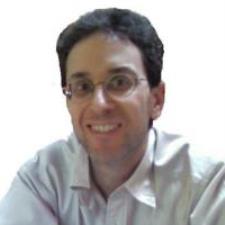
Near New Haven, CT
Caring Expert Tutor
About Me: I am a Wesleyan University graduate and private tutor since 1998, specializing in College Essay Coaching, Essay Writing, Editing and Proofreading (all levels, no citations), and Elementary Math. For six years, I taught writing and...
About Me: I am a Wesleyan University graduate and private tutor since 1998, specializing in College Essay Coaching, Essay Writing, Editing and Proofreading (all levels, no citations), and Elementary Math. For six years, I taught writing and...
Doug is teaching my son math and writing skills. He provides clear instructions and has enhanced my son's learning by providing a fun, energetic, and challenging approach. - Gavin, 127 lessons with Douglas

New Haven, CT
M1 at WashU in St. Louis, Yale Biomedical Engineering, MCAT Tutor
I recently graduated from Yale University with a B.S. in Biomedical Engineering. Most of my favorite classes have been taught by professors who are engaging and explain confusing concepts well. In turn, I try and apply this to my tutoring style. I...
I recently graduated from Yale University with a B.S. in Biomedical Engineering. Most of my favorite classes have been taught by professors who are engaging and explain confusing concepts well. In turn, I try and apply this to my tutoring style. I...

New Haven, CT
Cambridge Grad | Math & Science Tutor | UK/US Admissions Pro
Over the last decade, since graduating from Cambridge with an MSci in Natural Sciences, I have worked as a classroom science teacher, a private educator, and a university and schools consultant across the globe, with students aged 5 to graduate...
Over the last decade, since graduating from Cambridge with an MSci in Natural Sciences, I have worked as a classroom science teacher, a private educator, and a university and schools consultant across the globe, with students aged 5 to graduate...
Tutors on Wyzant Cost $35 - 60 per hour on average
Tutors using Wyzant are professional subject experts who set their own price based on their demand and skill.
Compare tutor costs. With a range of price options, there’s a tutor for every budget.
Sign up, search, and message with expert tutors free of charge.
Only pay for the time you need. Whether it’s one lesson or seven, you decide what to spend.
Love Your Lesson Or It’s Free
Your first hour with a new tutor is protected by Wyzant’s Good Fit Guarantee. If you’re not satisfied with your lesson, you don’t pay. No questions asked.Reported on by leading news outlets



Tutors in New Haven, CT
Connect with New Haven tutors on Wyzant for personalized, one-on-one learning in a wide range of subjects. Find experienced instructors to help students of all ages and skill levels improve academically and build confidence.
Wyzant helps learners in New Haven connect with local and online tutors to achieve their academic and personal learning goals. Whether students need help in school subjects, test prep, or skill development, Wyzant offers expert guidance tailored to each individual.
Explore how Wyzant’s tutors support hands-on learning, flexible scheduling, and progress tracking. Access personalized help that fits your schedule and learning style while building confidence and achieving success.
Private Tutors in New Haven
Your New Haven private tutoring options may be numerous, but don't you want to take 1 on 1 lessons with the very best tutors in New Haven? We have the largest network of qualified private tutors, so students can choose their ideal tutor (and rates) from the best of the best. With Wyzant, you can find local tutors for over 250 subjects, including:
New Haven Chemistry Tutors | New Haven Nursing Tutors | New Haven English Tutors | New Haven Spanish Tutors | New Haven Statistics Tutors | New Haven Math Tutors | New Haven Italian Tutors | New Haven French Tutors | New Haven Microsoft PowerPoint Tutors | New Haven Singing Lessons | New Haven Arabic Tutors | New Haven Chess Lessons | New Haven TOEFL Tutors | New Haven Photography Lessons | New Haven German Tutors | New Haven Piano Lessons | New Haven Elementary (K-6th) Tutors | New Haven SSAT Tutors | New Haven Kindergarten Tutors | New Haven ASVAB Tutors | New Haven Adobe Photoshop Lessons | New Haven Basketball Lessons | New Haven Microsoft Excel Tutors | New Haven Praxis Tutors
Tutoring Near New Haven
If you don’t live in the center of New Haven, we do have local tutors in areas that may be closer to you, conveniently available for private 1:1 lessons at attractive rates. Compare reviews and qualifications and reach out to a tutor in your metro ASAP.
Hartford Tutors | Waterbury Tutors | Bridgeport Tutors | Stamford Tutors | West Hartford Tutors | Hamden Tutors | Norwalk Tutors | Danbury Tutors | New Britain Tutors | East Haven Tutors | Bristol Tutors | Meriden Tutors | Brentwood Tutors | Manchester Tutors | Fairfield Tutors | Milford Tutors | East Hartford Tutors | Stratford Tutors | Dix Hills Tutors | Middletown Tutors | Wallingford Tutors | Smithtown Tutors | Wolcott Tutors | Torrington Tutors | Huntington Tutors | Shelton Tutors | Greenwich Tutors | Central Islip Tutors
Find Private Lessons Near Your Local School
Learn where you live. Find tutoring that is close to the classroom or campus that matters to you. Compare pricing and read thousands of reviews from students and parents like you. Make the grade when you hire a personal tutor on Wyzant’s marketplace.
Find online tutors
Get help anytime! We only accept the best online tutors into our community. Get the help you need, right when you need it with the convenience of online lessons.

